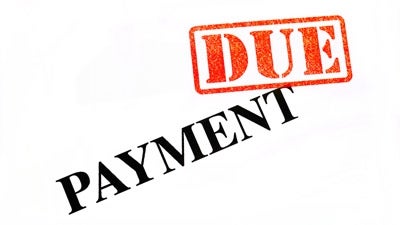
You’re a small business owner, not a collection agency. You’re probably not all that good at or fond of dunning customers who don’t pay their bills on time.
Unfortunately it’s a real problem and that reality should motivate you to become an expert in keeping your cash flowing in a timely manner. First, you need to get your charging and billing system designed so that it inherently encourages quick payments and second, you need to communicate “carrot and stick” messages to your clients.
Proactive and pre-emptive measures
- Be good at the basics. When you’re billing customers, bill immediately upon service or product delivery. Don’t send all your bills once or twice a month. It builds a delay into your system. Send out followup reminders promptly.
- Accept online payment options. Making a customer put a check in the mail adds an extra hoop to jump through. The cloud accounting provider FreshBooks says businesses that accept online payments get paid 8 percent more quickly. In the same way, sending electronic invoices speeds things up and may lower your costs.
- Be up close and personal. Do your customers and clients have a strong relationship with you or a certain member of your team? Have reminders come directly and personally from the person with whom they have the relationship. Usually that’s an account rep. Customers don’t want to jeopardize these relationships or embarrass themselves.
- Spread out payments. For bigger bills or projects, requiring 50 percent up front, 25 percent midway through the contract and 25 percent after completion automatically improves your cash flow. You can vary these ratios to suit your situation. Even half up front and half on completion may be a major improvement.
- Set the terms you want. Does a bill become overdue in 30 days, 20 days, 14 days, 10 days or never? It’s your choice. Make it whatever works best for your business. However, communicate this clearly at the onset of a contract. Also, be sure it is prominently and clearly stated on your invoice.
Carrots and sticks
- Penalize late payments. When the balance is not paid in time, what is the cost to the customer? Make sure no one could miss the penalty when reading your invoice. Including something like: “If paid after June 22, 2014 the amount due is…” can help. Don’t over penalize; that tends to backfire.
- Encourage early payments. If people pay upfront, offer a discount. It will build brand loyalty among your most valuable customers and also save you administrative costs and hassles.
This article was originally published by Susan Solovic
Published: May 8, 2014
2582 Views
2582 Views












